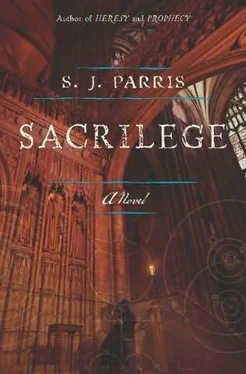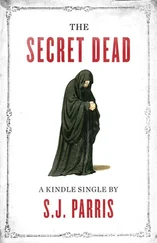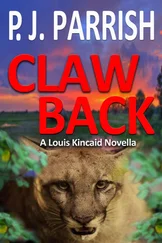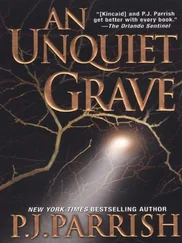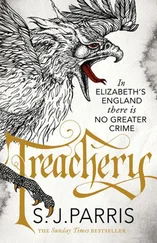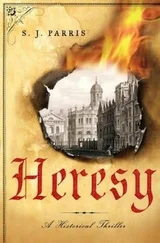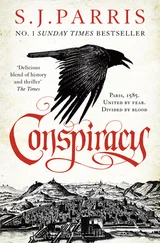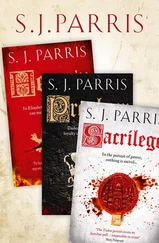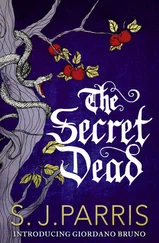“Well, obviously.” She removed her hand. “As I have said, if I am convicted of killing his father, he will inherit instead.”
“But if I find evidence to incriminate him, you become a wealthy widow. Am I right?”
She leaned across the table and fixed me with that look, her eyes flashing.
“And would I not deserve that, after everything I have suffered?”
“Of course. But you will inherit regardless of who the real killer turns out to be, surely, provided it can be proved? I can’t produce evidence against Nicholas just because you want it to be him.”
“But who else would have a motive for killing Sir Edward and ensuring I am blamed, if not him? Especially after his father’s will was changed.”
“Tell me about the will, then.”
“Before Sir Edward married me, Nicholas was his only next of kin and stood to inherit everything. But about a month before my husband was murdered, he made a new testament. Rights to his property and all the income from his estates was made over to me to be passed to our children, whenever they should arrive.” She broke off and made a face of disgust at the idea. “Nicholas was given a small allowance—barely enough for the lowest kind of food and board.”
“But your husband had no affection for you. Why would he do that?”
“To humiliate his son, I suppose. He had spent so much on Nicholas’s education, only for him to drink and gamble away his chances of a profession in the law. He said he had given Nicholas ample chance to change his ways, and the best way to make him grow up was to close his purse.”
I nodded. “I can see that would have made Nicholas furious. But angry enough to beat his own father to death?”
Sophia rested her chin on her hand.
“I could believe it. To murder his father and have me executed for it would have been a fine revenge on both of us—with the advantage of removing any obstacle to his inheritance.”
“And it rests entirely between you and Nicholas? No one else stands to benefit from Sir Edward’s will?”
“Not that I know of, but then, I never read the document. I only know because Sir Edward took great pleasure in telling Nicholas and me of the changes over dinner. Perhaps he thought it would encourage me to hurry up and give him a better son.”
“Then why did Nicholas mention the Widow Gray?”
“I don’t know. What did he say?”
“She was one of the people he said would not take his inheritance from him, when he was in his cups last night.”
Sophia looked uncomfortable.
“There is gossip about her in the town …” Her voice trailed off. “But who knows if there is any substance to it.”
“Your husband knew her?”
She nodded.
“Could she have been his mistress?”
She shrugged, expressionless.
“Maybe. She has a son, I know that much. A boy of about twelve.”
I nodded. If the boy was Sir Edward’s bastard, that might explain why Nicholas Kingsley thought the widow wanted money from the estate.
“Sir Edward’s friends—the ones who visited him for those secretive meetings. Might any of them have wanted him dead? Had they fallen out, perhaps?”
Sophia looked at her hands for a long moment. Eventually she raised her head.
“Bruno, those are powerful men you are talking about. If you start poking into their business, you’ll draw unwelcome attention to yourself and they’ll find a way to stop you.”
“I thought you wanted me to ask questions?”
“Yes, but—what good will it do anyone if they have you arrested? Better that you concentrate your search—”
“On Nicholas Kingsley?” I stood up, and took a few paces, before rounding on her again, frustrated. “But what if it isn’t him? What if someone killed your husband, not for his money, but for some other reason—revenge, or because he crossed them? You would not want an innocent man to die, surely, however obnoxious he may be. Think—who else might have wanted him dead? What about Tom Garth?”
“Tom Garth? Oh—from the cathedral. What has he to do with it?”
“He held a grudge against the Kingsley family. Last night I heard him talk of taking the law into his own hands. And he is gatekeeper at the cathedral—he could easily have killed Sir Edward that night.”
“But Tom Garth had resented Sir Edward for years, since his sister died. Why would he suddenly take it into his head to kill him now? And why would he leave a woman’s bloodied gloves where they would be found to have me blamed?” She shook her head. “I think you are wandering from the path here, Bruno.”
I ran both hands through my hair.
“Look, you said you wanted me to find the truth—that’s why you dragged me here. Now you are telling me what I should find!”
“Lower your voice.” Her jaw was tight with anger. She took a deep breath. “Very well. His regular supper companions at home were the physician Sykes, the mayor of Canterbury, and the cathedral treasurer—”
“John Langworth.”
She looked surprised.
“You know him?”
“We have met. You know that Langworth is suspected of Catholic sympathies? Did your husband share his feelings? What about Sykes?”
“I don’t know!” She looked nettled. “I never heard my husband express any religious view that was other than orthodox. You have to understand, Bruno—I was concentrating on surviving.”
“I know,” I said, attempting to sound soothing.
We looked at each other in silence for a moment, until she dropped her gaze to the table.
“It was Langworth who brought me the news of my husband’s death, and his belongings.”
“And Langworth who found the body.” I thought again of Harry’s warning. Langworth’s close connection to Henry Howard should have made me more inclined to heed the general view that to cross the treasurer was an act of wilful self-sabotage; instead it made me more determined that he should not be allowed to hide behind the reputation he had tried to create.
Sophia looked up at me, apprehensive.
“That doesn’t mean—”
“I was thinking aloud.” I brushed her objection aside as a thought occurred to me. “Do you think your husband knew that people heard you screaming? Visitors to the house, I mean.”
“Screaming?” she said, as if the idea were absurd. A crease appeared between her eyebrows. “What are you talking about?”
“When he beat you.”
“But I never screamed.” Her voice became very steady and quiet. “He told me if I made a sound he would make it a thousand times worse. Then it became a matter of pride—not to cry at all, to take it all without flinching.” She picked at the skin around her nails and I saw the muscles in her jaw tense.
“Perhaps you cried out without realising it,” I suggested. Her scathing look told me what she thought of that idea.
“I didn’t scream,” she repeated firmly, closing her eyes. After a moment she opened them again and looked at me. “What makes you say that I did?”
“A girl delivering something to the house says she heard someone screaming in the grounds. Who could it be, if not you?”
Sophia shook her head. “Foxes? The house is surrounded by a burial ground grown wild—there must be dens by the dozen.”
“Perhaps.” I sighed. She was right; I needed to concentrate first on the obvious instead of chasing after every chance rumour I caught about Sir Edward. I recalled the girl Rebecca’s noisy grief outside the apothecary’s shop earlier; perhaps, as he had suggested, what she heard was no more than the effects of an overactive imagination.
“Stop pacing, Bruno, it’s tiring to watch you,” Sophia said gently, after a few moments. Then she pushed her stool back and crossed the room to block my path. “Have I asked the impossible?” she whispered, a sad smile hovering at her lips as she rested her hands on my arms, just below the shoulder. It was not quite an embrace, more a gentle restraint.
Читать дальше
Конец ознакомительного отрывка
Купить книгу
